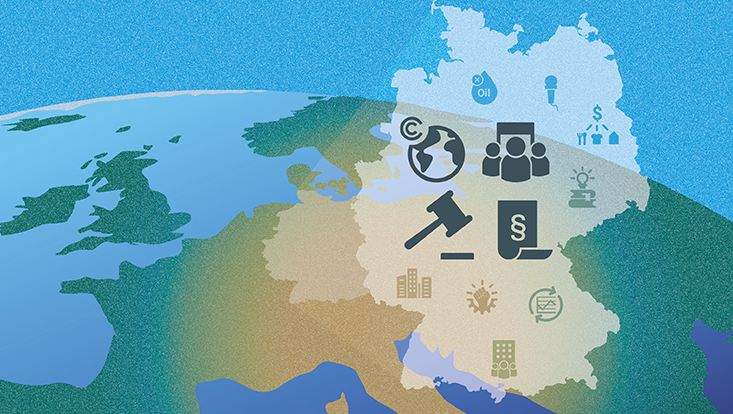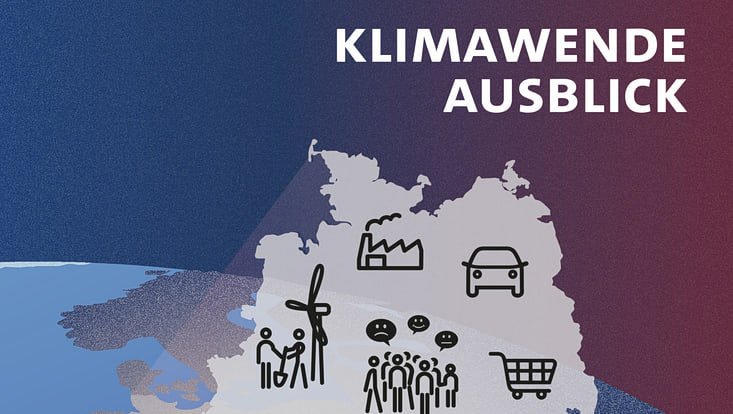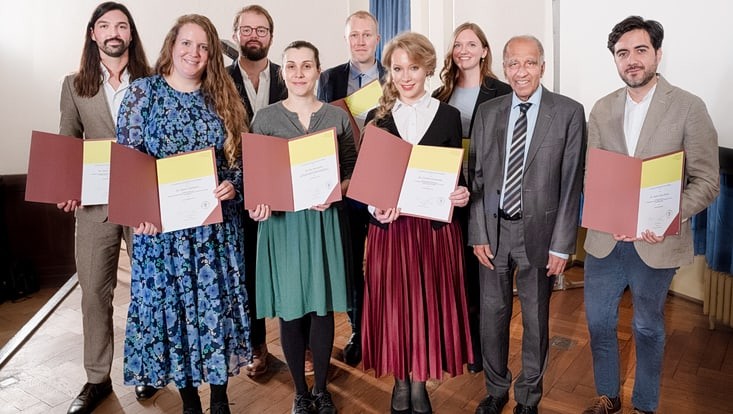and Society (CLICCS)
Political Risks Endanger Germany's Climate Transformation
24 June 2024, by Franziska Neigenfind

Photo: CLICCS/UHH
To limit global warming, Germany aims to become climate-neutral by 2045. Though technologically and economically feasible, from a political and social perspective the transformation is at risk of losing momentum – as Prof. Stefan Aykut shows in a new study. He and his team examine key factors for a low carbon shift: social drivers that can either hinder or support the climate transformation. In the first edition of a new series, the team took a closer look at the role of German, European and global climate policy, as well as of climate protests and climate lawsuits.
Last year, Germany significantly reduced its greenhouse-gas emissions, but your latest analysis of the German climate transformation yielded some sobering results.
Stefan Aykut: Last, year, it looked for the first time like we were on the right track to achieving our climate targets. Germany’s greenhouse-gas emissions were ten percent lower than in 2022! On the one hand, this is thanks to the expansion of renewable energies. At the same time, less energy was generated from fossil fuels and there was less energy demand from the business sector and consumers alike. However, some of these trends are the result of crisis-based effects; for many of the reductions achieved to date, there’s no guarantee they can be maintained in the future. With current measures and regulations, becoming climate-neutral by 2045 doesn’t seem plausible.

What exactly does that mean?
Aykut: Our study shows that the political measures adopted to date won’t suffice to achieve the climate transformation in the long run. Political risks are growing: implementation conflicts are becoming more frequent, and there is growing public support for right-wing populism and extreme right parties, which categorically reject climate protection measures. Just now, the results of the European elections confirm this trend. Moreover, German and European debt policies and fiscal decisions limit flexibility when it comes to making climate-friendly investments. But focusing on a balanced budget is problematic in times when, in fact, massive investments are needed in order to drive the required transformation.
That could worsen tensions and conflicts in the political world and society …
Aykut: We can see it, for instance, in the resistance to the heating law last year or the farmers’ protests against the reduction of subsidies for agricultural diesel. Ill-crafted or badly communicated climate measures can trigger implementation conflicts, which in turn lead to polarization. At the same time, social movements and civil society organizations are confronted with shrinking spaces for engagement. We see climate protests being criminalized, financing possibilities for NGOs restricted and even freedom of the press curtailed. This creates new obstacles to securing the urgently needed broad societal support for the climate transformation.
What does social support for climate protection look like at the moment, and what about the climate movement?
Aykut: The climate movement has become more diversified and can draw on extensive societal solidarity networks. The majority of Germans continue to fundamentally support climate protection. But the climate is no longer top on the list of concerns, and conflicts concerning the implementation of very specific climate policy measures are bound to multiply. As such, the passive support for climate protection shown in surveys is often insufficient to achieve political decisions in support of climate protection.
Where do you see successes for climate protection?
Aykut: In the courts, we can see a trend toward progressive jurisprudence when it comes to climate law. For example, the European Court of Human Rights ruled in favor of a group of elderly Swiss citizens who claimed that insufficient climate protection violated their human rights. But the courts alone can’t achieve the climate transformation. Accordingly, hope above all lies in combining positive dynamics in politics, civil society and jurisprudence, which can be mutually reinforcing and spur on climate protection.
The article was published in the CLICCS Quarterly magazine, the research news from the Cluster of Excellence "Climate, Climatic Change, and Society" every three months.
Publication
Aykut SC, Hüppauff L, Frerichs L, Fünfgeld A, Walter Y, Aguirre F, Mollyk A, Ritterbach L and Hildebrandt F (2024). Klimawende Ausblick 2024. Gesellschaftliche Treiber der Transformation in Deutschland. Band 1. Klimapolitik, Klimabewegung und Klimaklagen. Universität Hamburg.
DOI: https://doi.org/10.25592/uhhfdm.14271
More about the publication: uhh.de/wiso-klimawende


